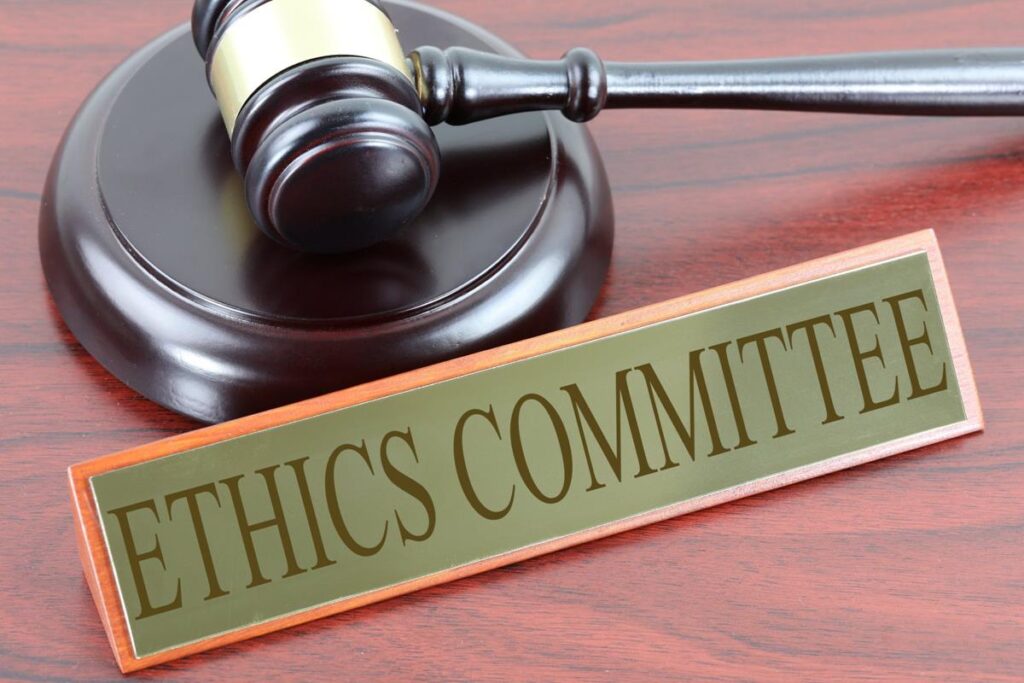
Understanding the Role of Ethics Committees in Research Writing
In the changing field of research, where knowledge constantly evolves, ethical considerations stand as the bedrock ensuring the integrity, safety, and dignity of all involved parties. Ethics committees play a pivotal role in upholding these principles, guiding researchers through a complex landscape of moral and legal responsibilities. This blog aims to shed light on the significance of ethics committees in the context of research writing, elucidating their role in shaping responsible and ethical research practices.

The Purpose of Ethics Committees
Ethics committees, also known as Institutional Review Boards (IRBs) or Research Ethics Boards (REBs), serve as guardians of ethical standards in research. Their primary objective is to review, approve, and monitor research involving human subjects or sensitive data to ensure that it aligns with ethical guidelines. By scrutinizing research protocols, methodologies, and consent procedures, these committees strive to protect the rights, well-being, and privacy of participants.
Key Responsibilities of Ethics Committees
- Participant Protection: Ethics committees meticulously assess the potential risks and benefits associated with a research study. They scrutinize the methods used to obtain informed consent from participants, ensuring that individuals are fully aware of the study’s purpose, procedures, and any potential risks involved.
- Research Design and Methodology: Committees delve into the research design and methodology to ensure they adhere to ethical standards. This includes evaluating the scientific merit of the study and confirming that the chosen methods are appropriate and justifiable.
- Confidentiality and Privacy: Protecting participant confidentiality is a cornerstone of ethical research. Ethics committees scrutinize how researchers plan to collect, store, and analyze data, ensuring that measures are in place to safeguard participant privacy.
- Inclusivity and Diversity: Committees assess whether the recruitment and selection of participants are fair and just. They examine if researchers consider diversity in their samples and avoid excluding certain groups without valid reasons.
- Continual Monitoring: Ethics committees are not a one-time checkpoint; they engage in ongoing monitoring of research activities. This involves periodic reviews to ensure that the study continues to meet ethical standards and any emerging issues are addressed promptly.
Ethics Committees and Research Writing
- Ethical Approval and Manuscript Submission: Before researchers embark on writing their findings, obtaining ethical approval is often a prerequisite. Journals and publishers commonly require evidence of ethical review as part of the manuscript submission process.
- Methodology Section: In research papers, a detailed methodology section is crucial. Researchers need to transparently report the steps taken to obtain ethical approval, the informed consent process, and measures in place to protect participant confidentiality.
- Disclosure of Conflicts of Interest: Ethics committees may also review and manage conflicts of interest among researchers. In the writing process, authors must transparently disclose any potential conflicts, ensuring the credibility and impartiality of their work.
Embarking on a research journey is a formidable task for students, laden with academic rigor and ethical considerations. In the quest for a seamless research experience, MakeMyAssignments emerges as a valuable ally, providing comprehensive support to students navigating the complex landscape of ethical research writing. This blog explores how MakeMyAssignments can be instrumental in assisting students in meeting ethical standards throughout their research endeavors.
- Expert Guidance on Ethical Frameworks: MakeMyAssignments offers access to seasoned professionals well-versed in ethical frameworks and guidelines. Through personalized consultations, students can receive expert guidance on navigating the intricacies of research ethics, ensuring that their work aligns with the highest standards.
- Ethical Review Consultations: The platform facilitates ethical review consultations, allowing students to receive constructive feedback on their research proposals and methodologies. By tapping into the expertise of experienced reviewers, students can address potential ethical concerns and refine their research plans.
- Incorporating Ethical Considerations in Research Design: MakeMyAssignments assists students in seamlessly integrating ethical considerations into their research design. Professionals on the platform provide insights on how to uphold participant rights, ensure informed consent, and establish robust measures for confidentiality and privacy.
- Comprehensive Research Writing Assistance: From the initial stages of crafting research proposals to the final touches on a manuscript, MakeMyAssignments offers comprehensive support. Expert writers guide students in articulating the ethical dimensions of their research in the methodology section, ensuring transparency and compliance with ethical standards.
- Quality Assurance and Plagiarism Checks: MakeMyAssignments places a premium on academic integrity. Through rigorous quality assurance processes and plagiarism checks, students can be confident that their work not only meets ethical standards but also adheres to the principles of originality and honesty.
- Timely Feedback and Revisions: Timeliness is crucial in the academic realm. MakeMyAssignments provides prompt feedback on drafts, allowing students to address ethical concerns or refine their work in a timely manner. This iterative process ensures that the final submission is ethically robust and academically sound.
- Adherence to Journal Requirements: Many academic journals necessitate evidence of ethical approval for submitted manuscripts. MakeMyAssignments assists students in aligning their research with journal requirements, ensuring a smooth submission process and increasing the likelihood of acceptance.
MakeMyAssignments emerges as a valuable companion for students navigating the ethical complexities of research writing. By leveraging the platform’s resources, students not only enhance the quality of their work but also cultivate a deep understanding of ethical principles. As a result, they are better equipped to contribute responsibly to the academic discourse while upholding the highest standards of integrity and ethical conduct.



